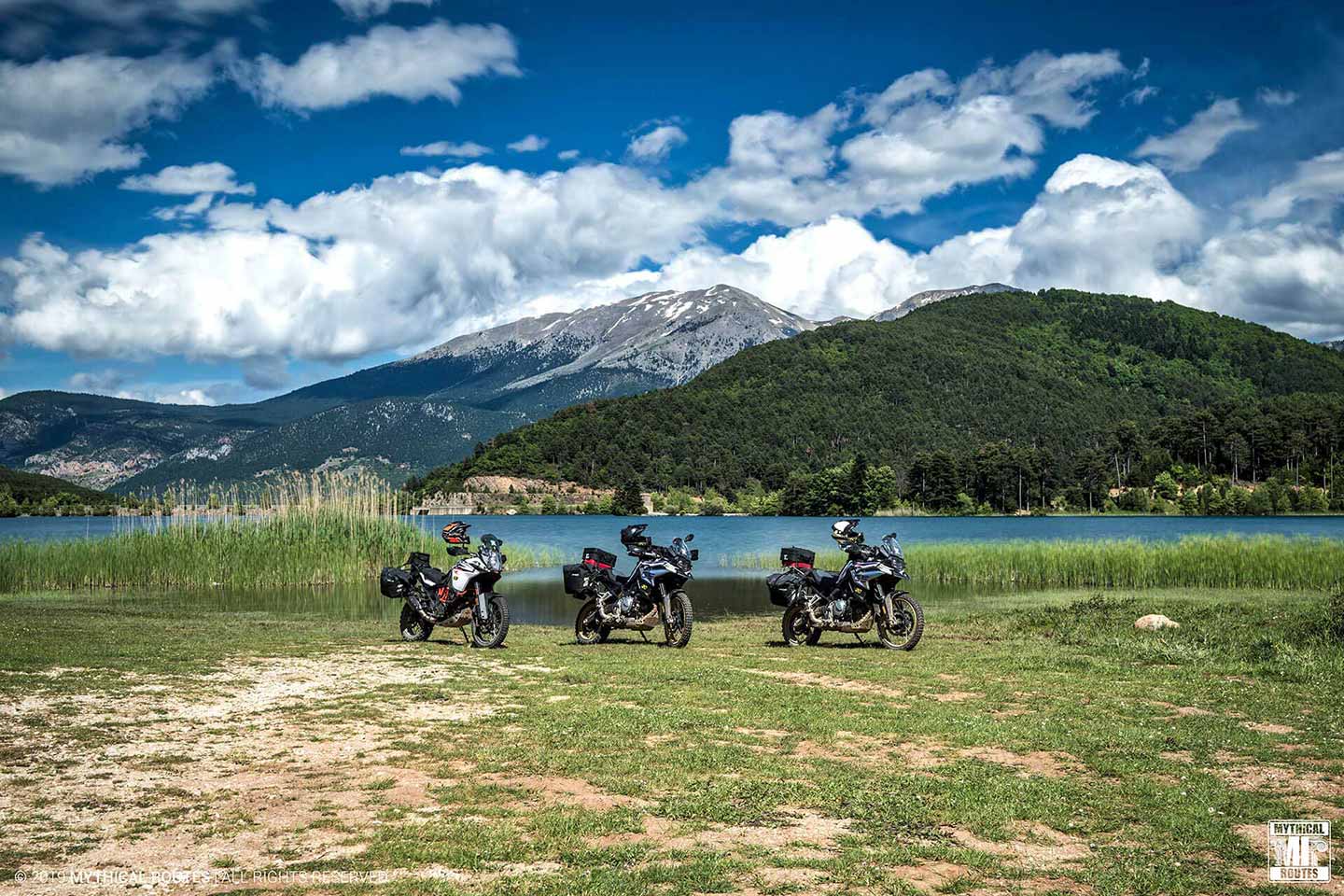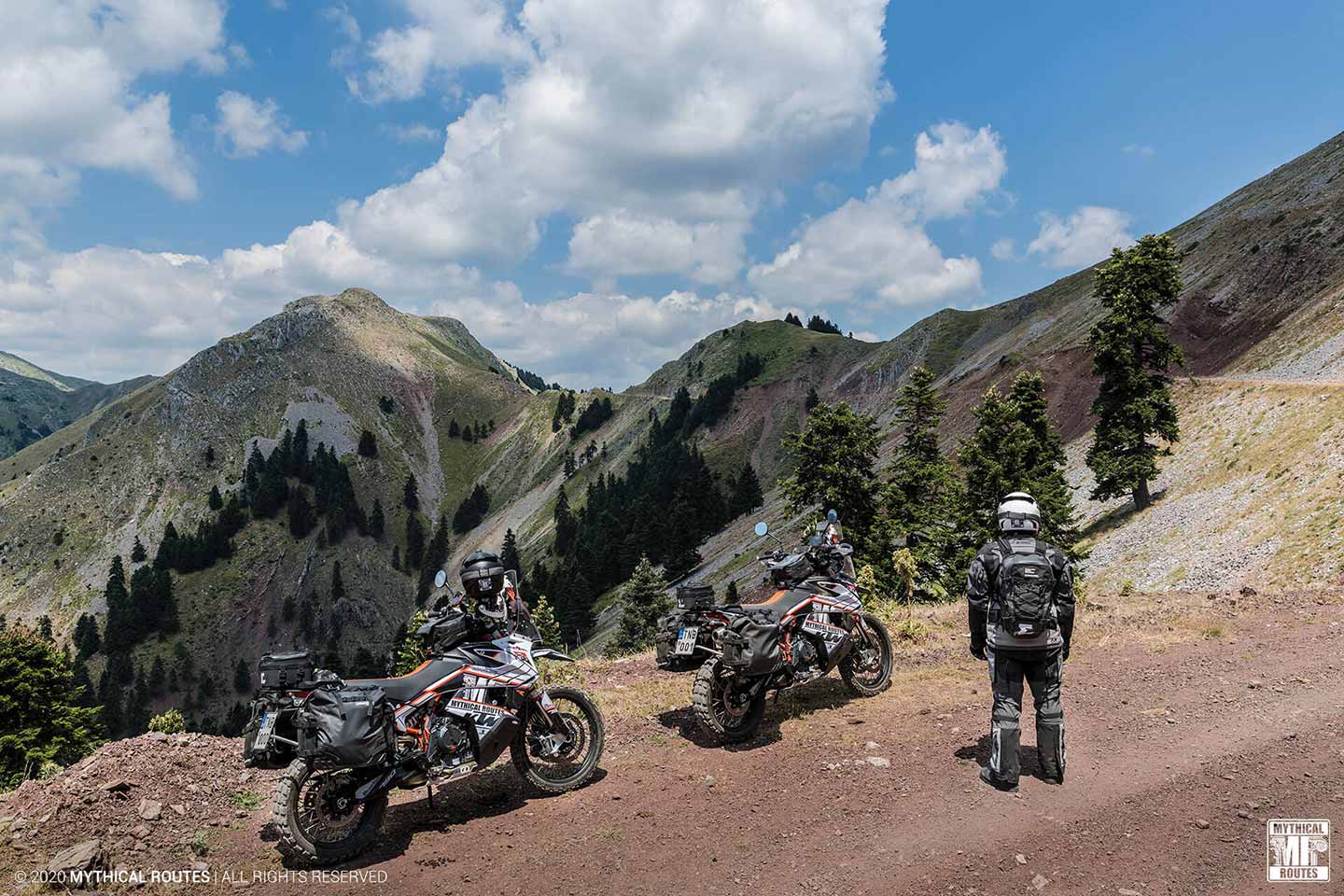
Greece (Ελλάδα), officially the Hellenic Republic (Ελληνική Δημοκρατία), historically also known as Hellas, is a country located in the southern tip of the Balkan Peninsula, located at the crossroads of Europe, Asia, and Africa. It shares land borders with Albania to the northwest, North Macedonia (former Yugoslav Republic of Macedonia), Bulgaria to the north, and Turkey to the northeast. The Aegean Sea lies to the east of the mainland, the Ionian Sea to the west, the Cretan Sea, and the Mediterranean Sea to the south. The country consists of nine traditional geographic regions: Macedonia, Central Greece, the Peloponnese, Thessaly, Epirus, the Aegean Islands (including the Dodecanese and Cyclades), Thrace, Crete, and the Ionian Islands.
Greece has the longest coastline on the Mediterranean and the 11th longest coastline in the world at 13,676 km (8,498 mi) in length, featuring many islands, of which 227 are inhabited. Eighty percent of Greece is mountainous, with Mount Olympus being the highest peak at 2,918 meters (9,573 ft).

Greece is considered the cradle of Western civilization, being the birthplace of democracy, Western philosophy, Western literature, historiography, political science, major scientific and mathematical principles, Western drama, and the Olympic Games.
From the eighth century BC, the Greeks were organized into various independent city-states, known as poleis (singular polis), which spanned the entire Mediterranean region and the Black Sea. Philip of Macedon united most of the Greek mainland in the fourth century BC, with his son Alexander the Great rapidly conquering much of the ancient world, from the eastern Mediterranean to India. Greece was annexed by Rome in the second century B.C., becoming an integral part of the Roman Empire and its successor, the Byzantine Empire, which adopted the Greek language and culture.
The country's rich historical legacy is reflected in part by its eighteen (18) UNESCO World Heritage Sites.

Greece is primarily a mountainous country, the third most mountainous country in Europe after Norway and Albania, with more than 300 larger or smaller mountains. The most significant Greek mountain axis is the Pindus Mountain range, forming the “backbone” of Mainland Greece, which extends naturally to the mountains in the Peloponnese and Crete. The majority of the islands are in fact the mountain peaks of the now-submerged landmass which at one time linked Mainland Greece with Asia Minor.
Even though the country is famous for its islands and seas, Greece’s majestic nature will leave you gasping in awe. The highest mountain in the country is Mount Olympus in Macedonia, known from Greek mythology as the home of the gods, reaching a height of 2,918 m (Mytikas peak), while about 40 mountain ranges throughout the country exceed elevations of 2,000 m.
Eighty percent of Greece is mountainous, with Mount Olympus being the highest peak at 2,918 meters (9,573 ft).

The Greek mountains are characterized by their diversity, rare scenery, and unique forests, some of which rank among the oldest natural wooded lands in Europe. Due to the unsurpassable rich flora and fauna, many are protected as National Parks, while at the same time the infrastructure that was developed over the last few decades has created ideal destinations for those daring tourists who want to enjoy winter and mountain activities.
Greece is characterized by an extremely fragmented, rugged landscape hosting a great diversity of ecosystems and outstanding biodiversity. Almost 5% of its extensive coastline consists of ecologically sensitive wetlands. Two-thirds of the total population live no further than 2 km from the coast, while almost all of the tourist infrastructure is divided among islands and the coastal mainland.
Greece's climate is divided into three classes:
Such climatic and biological diversity, along with the rich flora and fauna that comes with it, made the need for the creation of national parks obvious and in 1938 the first national park in Greece was established, the Mount Olympus National Park, followed by the immediate creation of the Parnassos National Park.
